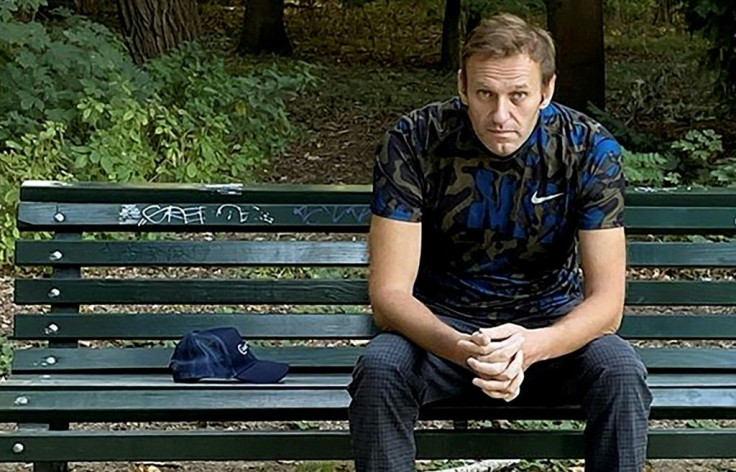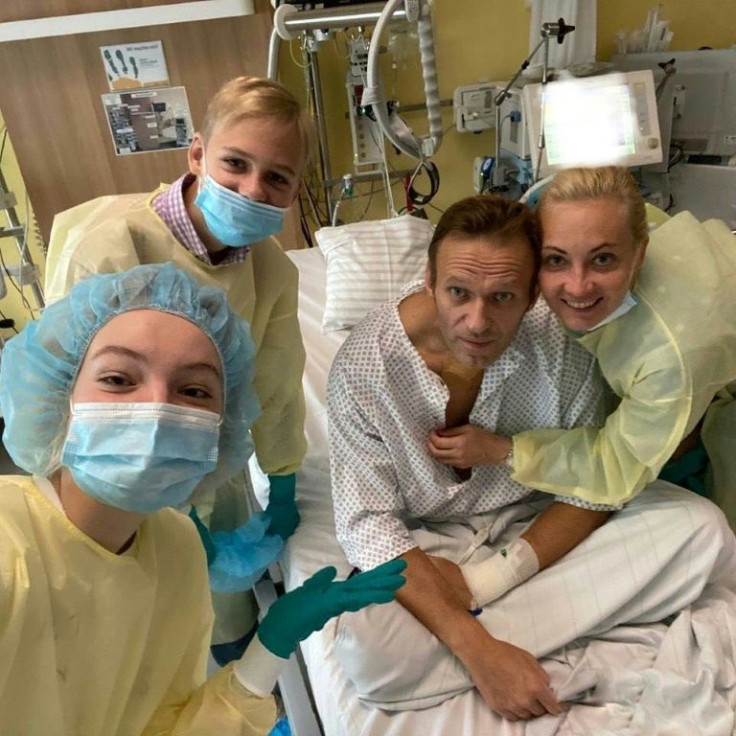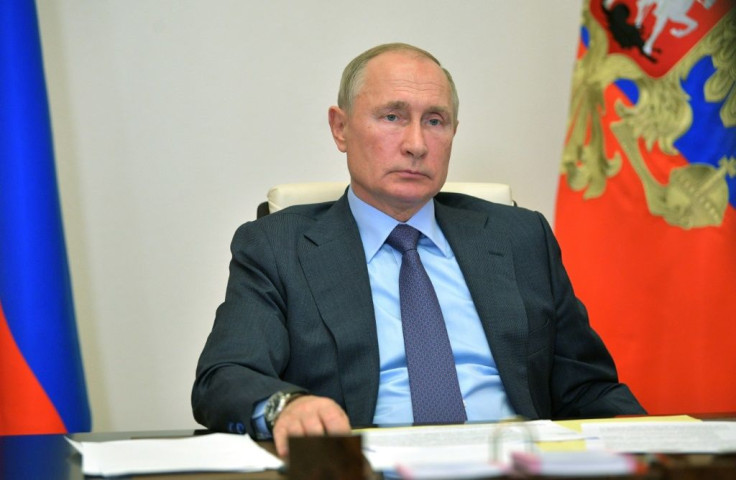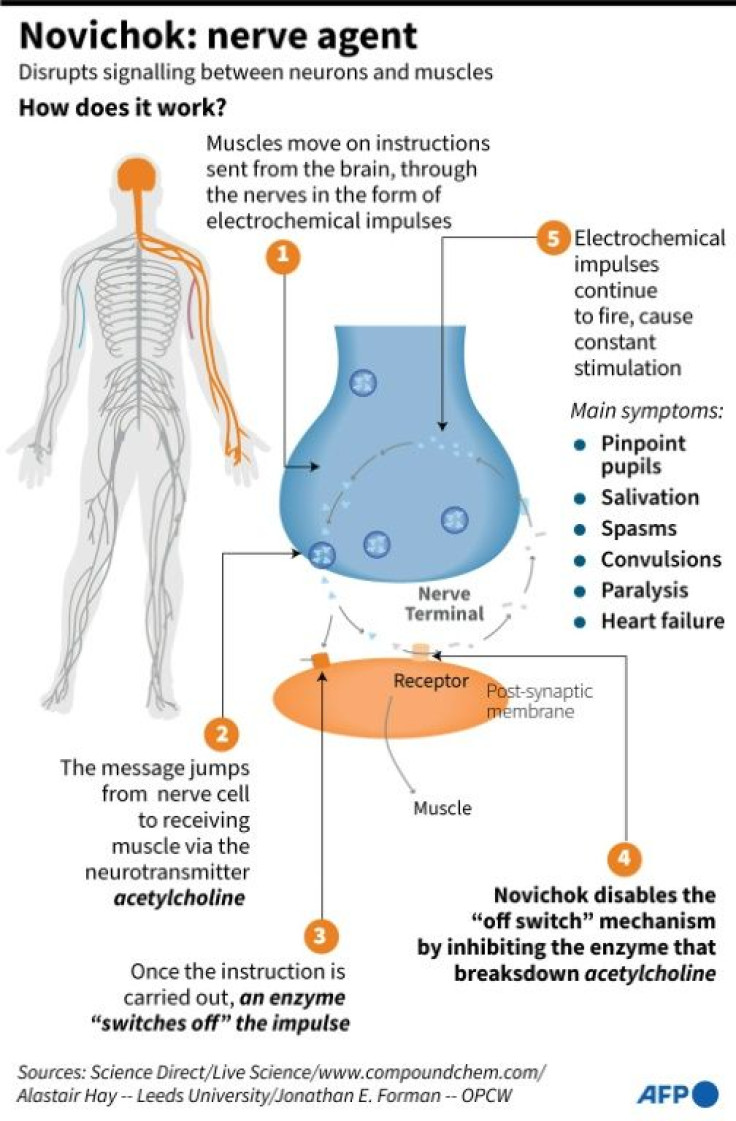Defiant Navalny Accuses Putin Over Poisoning
Kremlin critic Alexei Navalny accused President Vladimir Putin of being behind his poisoning on Thursday, as he vowed to return to Russia to press on with his opposition campaign.
In the first media interview since his poisoning, Navalny gave harrowing details of his collapse on a flight from Tomsk to Moscow after he was poisoned by what the West identified as the Soviet-era nerve agent Novichok.
The 44-year-old anti-corruption campaigner also said he would not be cowed by the experience, pledging to get fit as soon as possible to continue his fight.
"Not returning would mean that Putin has achieved his aim. And my job now is to stay the guy who's not afraid," he told the Spiegel weekly.

"I will not give Putin the gift of not returning to Russia," he said, adding that for him "Putin is behind this act, I don't see any other explanation."
The Kremlin immediately hit back at Navalny's statements, calling them "groundless and unacceptable", while the head of Russia's lower house of parliament, Vyacheslav Volodin, said Putin had helped save the dissident's life.
Putin's spokesman Dmitry Peskov also claimed that Navalny was working with the CIA.
"If the authorities on behalf of which Peskov is speaking have the proof of the nonsense he's saying, then it's a matter of national security, and I demand this proof be published," Navalny replied.

The Kremlin critic was evacuated to Berlin for treatment after he collapsed in August following a campaign trip to support opposition candidates in local elections in Siberia.
He was discharged just over a week ago and his first comments to the press came as European leaders were holding a summit during which the question of a response to Russia may be raised.
Germany, which holds the presidency of the EU, has said toxicology tests show he was poisoned by the Soviet-era nerve agent Novichok.
Laboratories in France and Sweden have independently corroborated Germany's findings.

The Kremlin has firmly denied allegations of involvement and accused Western leaders of launching a disinformation campaign over the opposition leader's illness.
Instead, it pointed to tests carried out by Russian doctors who first treated Navalny which came back negative for toxic substances.

Navalny had arrived in Berlin in a coma and on mechanical ventilation. He was finally discharged on September 22 after spending 32 days in the Charite hospital in the German capital, including 24 days in intensive care.
Putting responsibility for the poisoning squarely on Putin, Navalny said the "most important fact is Novichok".
Only the leaders of Russia's secret services can make the call to deploy the poison, he said.
In the interview, Navalny gave details of the moments when the poison took effect, leaving him breaking out in a cold sweat.
He described telling cabin crew that he had been poisoned before he fell on the floor.
"Then I heard voices that were getting softer, a woman calling 'Don't leave us!'. Then that was it. I knew I was dead. Only later did I realise that I was wrong."
Despite the close call, he pledged to press on with his activities when he returns to Russia.
"I will keep travelling through Russia's regions, stay in hotels and drink water that's in the rooms. What can I do otherwise? One cannot do much to counter Putin's invisible murderers."
For now, he is staying in Berlin with his wife and son as he undergoes the long process of rehabilitation.
"I take walks in the park in the morning, that's my task, then I do some exercises with my doctor, then in the evenings I go on a walk again," he said.
Navalny's poisoning has heightened tensions between Russia and the West, in particular aggravating the relationship with Germany.
Merkel had always insisted on keeping channels of dialogue open with Moscow but she has sharpened her tone lately, with Navalny's case coming a year after a murder in a central Berlin park that German prosecutors say was ordered by Russia.
Navalny aides said that German experts found Novichok on a water bottle taken from the hotel room where he stayed before being taken ill.
The bottle appears to have been key evidence for Germany's conclusion that the lawyer and outspoken Putin critic was poisoned with the deadly nerve agent.
Novichok was also used to poison ex-double agent Sergei Skripal in Salisbury, England, in 2018. He survived.
© Copyright AFP 2024. All rights reserved.











